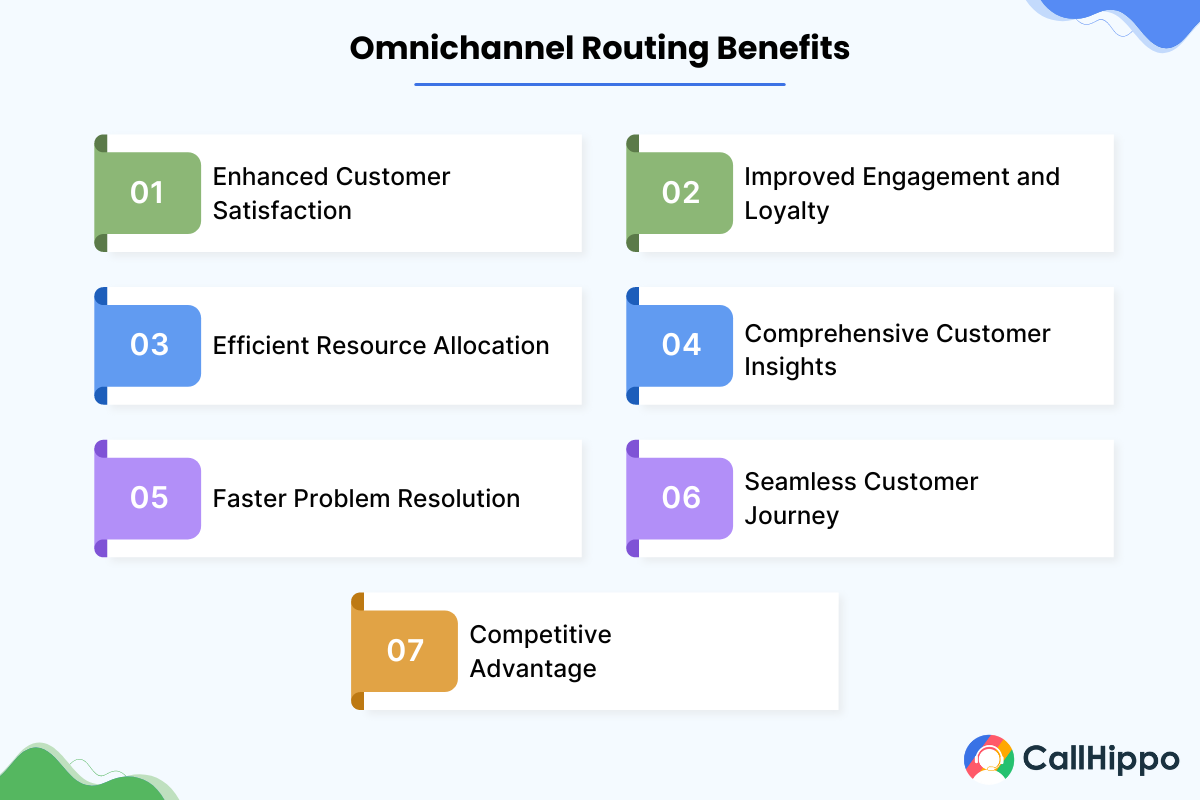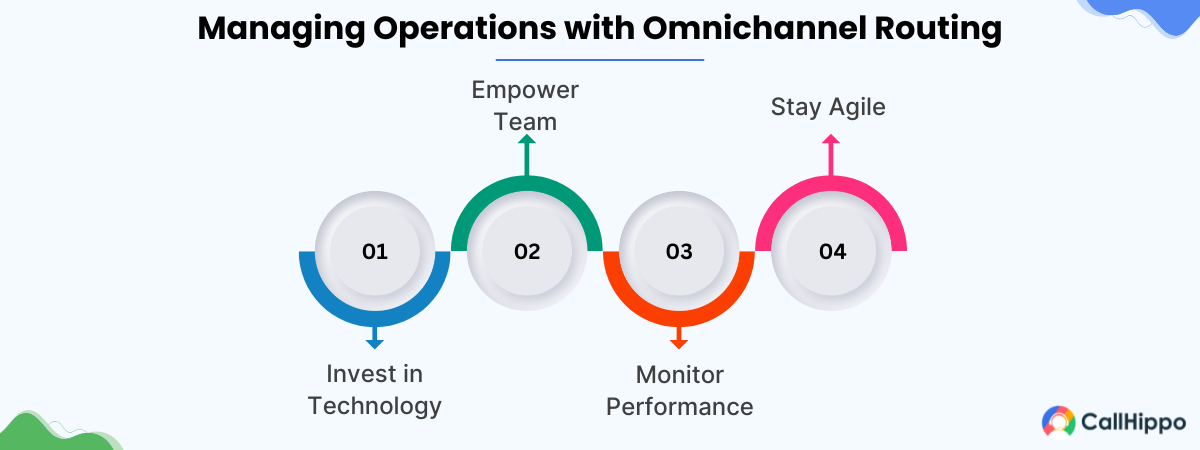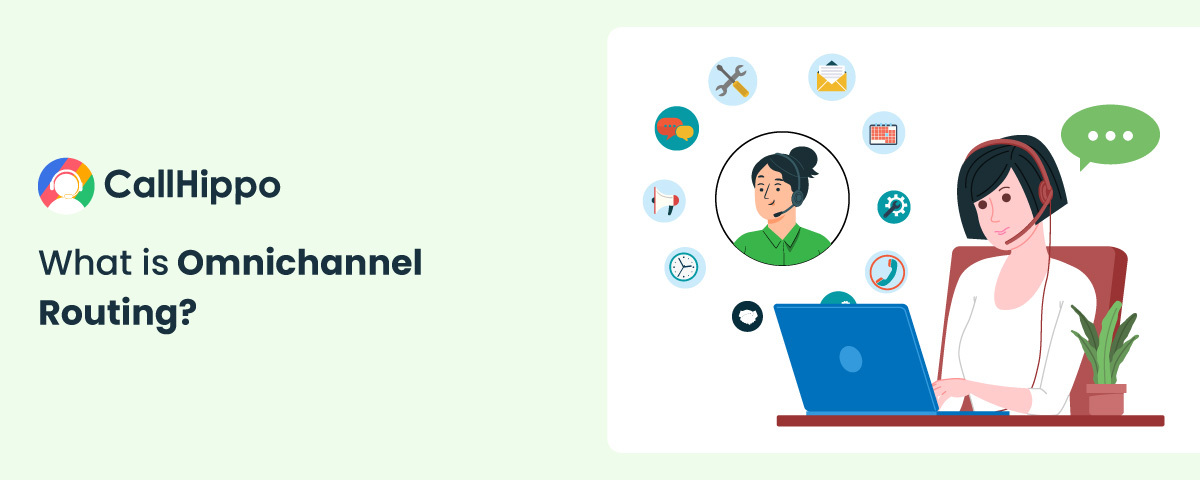In a digitally-driven industry, customer expectations are constantly evolving. Whether it’s through social media, email, chatbots, or traditional phone calls, customers expect a seamless and consistent experience across all channels when interacting with a brand.
In fact, 87% of consumers want a consistent experience across all shopping channels, hence making omnichannel routing more important. This is where omnichannel routing steps in—a powerful solution designed to streamline communication and enhance customer satisfaction.
Make sure to utilize omnichannel routing for a better customer experience with better engagement and retention. Break down information silos, gain insights into customer preferences and optimize resource allocation to meet evolving customer expectations.
What Is Omnichannel Routing?
Omnichannel routing is a strategy used by businesses to manage and route customer interactions across various omnichannel communication channels such as phone calls, emails, chat, social media, and more. Unlike traditional multichannel approaches, which manage each channel separately, omnichannel routing integrates all channels into a unified system. This ensures that customers can switch between channels without experiencing any disruptions or loss of information.
How Does Omni-Channel Routing Work?
At the core of omnichannel routing is advanced technology, typically powered by artificial intelligence (AI) and machine learning algorithms. These technologies enable businesses to analyze customer data, predict preferences, and automate the routing process. Here’s how it works:
1. Data Integration: Omnichannel routing platforms consolidate customer data from various sources, including CRM systems, social media platforms, and website interactions. This unified view of customer information allows businesses to gain insights into customer behavior and preferences.
2. Channel Agnosticism: Omnichannel routing treats all communication channels equally, allowing customers to switch between channels seamlessly. Whether a customer starts a conversation via email and later switches to live chat or phone, the system ensures continuity and context throughout the interaction.
3. Intelligent Routing: AI algorithms analyze customer inquiries in real time, considering factors such as the nature of the query, customer preferences, agent availability, and skill level. Based on this analysis, the system routes the interaction to the most appropriate agent or team, ensuring quick resolution and personalized service.
4. Unified Customer Experience: Regardless of the channel used, omnichannel routing provides a consistent and personalized experience for customers. Agents have access to a complete history of interactions, enabling them to pick up where the customer left off without the need for repetitive explanations.
Advantages of Omnichannel Routing
Implementing omnichannel routing offers several benefits for businesses and customers alike. Let’s explore them in detail below –

1. Enhanced Customer Satisfaction
Omnichannel routing ensures that customers receive consistent, personalized experiences across all communication channels. Whether they reach out via email, phone, chat, or social media, they can expect the same level of service and attention to their needs.
86% of customers are willing to pay more for a great customer experience.
This consistency builds trust and loyalty, leading to higher levels of satisfaction and retention.
2. Improved Engagement and Loyalty
By providing seamless transitions between channels, omnichannel routing encourages customers to engage more frequently with your brand. When customers can effortlessly switch from one channel to another without losing context, they are more likely to interact with your business multiple times and become loyal advocates.
3. Efficient Resource Allocation
Omnichannel routing optimizes resource allocation by directing customer inquiries to the most appropriate channels and agents. AI-driven routing algorithms analyze factors such as agent availability, skill level, and workload to ensure that each inquiry is handled efficiently. This minimizes wait times, reduces handling costs, and maximizes the productivity of your workforce.
4. Comprehensive Customer Insights
By consolidating data from multiple channels into a unified system, omnichannel routing provides businesses with a holistic view of customer interactions. Analyzing this data allows businesses to gain valuable insights into customer behavior, preferences, and pain points. Armed with these insights, businesses can tailor their products, services, and marketing efforts to better meet the needs of their customers.
5. Faster Problem Resolution
Omnichannel routing facilitates quicker problem resolution by enabling agents to access a complete history of customer interactions across all channels. This historical context allows agents to understand the full scope of the customer’s issue and provide relevant solutions without the need for customers to repeat themselves. As a result, customer issues are resolved more promptly, leading to higher levels of satisfaction.
6. Seamless Customer Journey
Omnichannel routing ensures a seamless customer journey by eliminating silos between different communication channels. Customers can start a conversation on one channel and continue it on another without any interruption. This continuity ensures that customers receive a cohesive experience throughout their interaction with your brand, regardless of the channels they use.
7. Competitive Advantage
Providing exceptional customer experiences is crucial for standing out from the competition. Omnichannel routing gives businesses a competitive advantage by enabling them to deliver superior service, personalized interactions, and faster problem resolution. This not only attracts new customers but also retains existing ones, driving long-term growth and success.
How to Manage Operations Effectively With Omnichannel Routing?
To leverage the full potential of omnichannel routing, businesses need to adopt a strategic approach:

1. Invest in Technology: Choose a robust omnichannel routing platform that aligns with your business needs and objectives. Look for features such as AI-driven routing, real-time analytics, and integration capabilities with existing systems.
2. Empower Your Team: Provide comprehensive training to agents to ensure they understand how to effectively utilize the omnichannel routing system. Encourage collaboration and knowledge sharing among team members to maximize efficiency.
3. Monitor Performance: Regularly monitor key performance indicators (KPIs) such as response times, resolution rates, and customer satisfaction scores. Use these insights to identify areas for improvement and refine your omnichannel strategy.
4. Stay Agile: The digital landscape is constantly evolving, so it’s essential to stay agile and adapt to changing customer preferences and technologies. Continuously evaluate and update your omnichannel strategy to stay ahead of the curve.
Final Thoughts
Through omnichannel routing, businesses can break down silos between channels, gain deeper insights into customer behavior, and optimize resource allocation to meet evolving customer expectations. By prioritizing consistency, responsiveness, and personalized interactions, businesses can differentiate themselves in a crowded marketplace, gaining a competitive edge and fostering lasting relationships with their customers.
Frequently asked questions
1. Is omnichannel routing suitable for all businesses?
Omnichannel routing is beneficial for a wide range of businesses across industries, particularly those aiming to enhance customer experience and streamline communication. Whether you’re a small startup or a large enterprise, omnichannel routing can help you provide seamless interactions, optimize resource allocation, and gain valuable insights into customer behavior.
2. How does omnichannel routing differ from multichannel routing?
Multichannel routing treats each channel as a separate entity, often resulting in disconnected experiences for customers and inconsistent support. Omnichannel routing integrates all channels into a unified system, ensuring a seamless and cohesive experience for customers as they switch between channels.

Subscribe to our newsletter & never miss our latest news and promotions.









